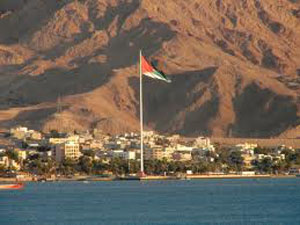
A bold political approach spearheaded by Jordan’s senior decision-makers is needed to tackle its water crisis, according to a forthcoming paper written for the Switzerland-based National Centre of Competence in Research (NCCR) Trade Regulation. Jordan’s political transition, accelerated by King Abdullah’s response to the Arab Spring, provides an unprecedented opportunity for the country to implement the reforms required for a water-secure future.
Jordan has vital national and human security interests in achieving water sustainability and has introduced reforms over more than two decades. But these efforts have not achieved the improvements needed to narrow worsening water deficits and pre-empt the catastrophe towards which the country is heading. More needs to be done.
The paper’s author Valerie Yorke shows in her analysis that the water challenge is linked to a wider problem - the organisation of political power. The monarchy depends for security on informal social structures, which tie military and civilian elites into networks of support, and on a social contract with the people. Patronage underpins the system, with privileges and benefits – including access to cheap water - exchanged for allegiance. The evolving political bargain permitted powerful anti-reformist groups to control the economy and allocation of resources. As a result, the water problem today cannot be remedied only through improved management and technical solutions. Political reforms must replace the networks of the ‘shadow state’ and their influence over policy with an inclusive political system ensuring transparent and accountable government.
Yorke says: “Only a political transition based on a new bargain between throne and people will pave the way to the institutional, legal and economic reforms needed for Jordan successfully to pursue solutions to its water challenge.”
The study makes policy recommendations, inter alia:
National leaders should
• Put water issues at the top of their agenda, formally mandate an integrated planning process that prioritises water and aligns its management with policies for economic growth, and make strategically- important water issues a priority in the country’s post-election dialogue.
• Recognise that Jordan’s long-term water security must be negotiated within the region. National leaders need to support regional initiatives to lay foundation for future collective management of shared resources, maximise international leverage in support of bilateral diplomacy – with Israel, and with Syria when politically feasible – to gain access to additional surface waters to help close medium-term deficits, and to explore bulk water supply options for the long term.
Donors should
• Use political, technical and financial instruments to support and nudge all Jordanians, whatever their stakes in the political status quo, towards the desired outcome of a shared, sustainable, post-rentier system future.
• Tighten conditionality, making sure financial support for projects across the board depends on government fulfilment of water reforms, in particular the restructuring of tariffs, steps toward extending private-sector participation, and improved efficiency and productivity in Highlands’ irrigated agriculture.
Valerie Yorke, author of the study, is a specialist on the Middle East. The study, funded by NCCR Trade Regulation, benefited from interviews held with Jordanian officials, water specialists, academics, journalists and representatives of the NGO and donor communities, who generously shared information and analysis.
For further inquiry, please contact the paper’s author, Valerie Yorke at valyorke@tiscali.co.uk
For assistance in communication matters, please contact the Communications Officer of the NCCR TradeRegulation, Erich Schwarz at erich.schwarz@wti.org
Latest News
-
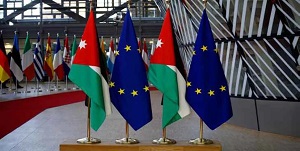 Jordan, EU to convene major investment conference at Dead Sea on April 21
Jordan, EU to convene major investment conference at Dead Sea on April 21
-
 US, Canada issue travel warnings for Mexico after drug kingpin killing
US, Canada issue travel warnings for Mexico after drug kingpin killing
-
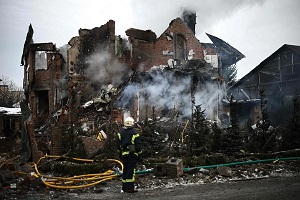 Ukraine needs $588 billion to rebuild from war — report
Ukraine needs $588 billion to rebuild from war — report
-
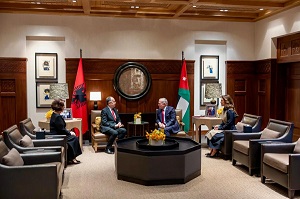 King, Albania president hold talks in Amman on expanding cooperation
King, Albania president hold talks in Amman on expanding cooperation
-
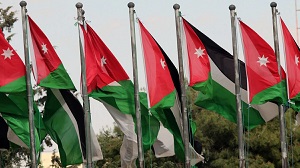 Jordan reaffirms it will not be launch point for military action against Iran
Jordan reaffirms it will not be launch point for military action against Iran